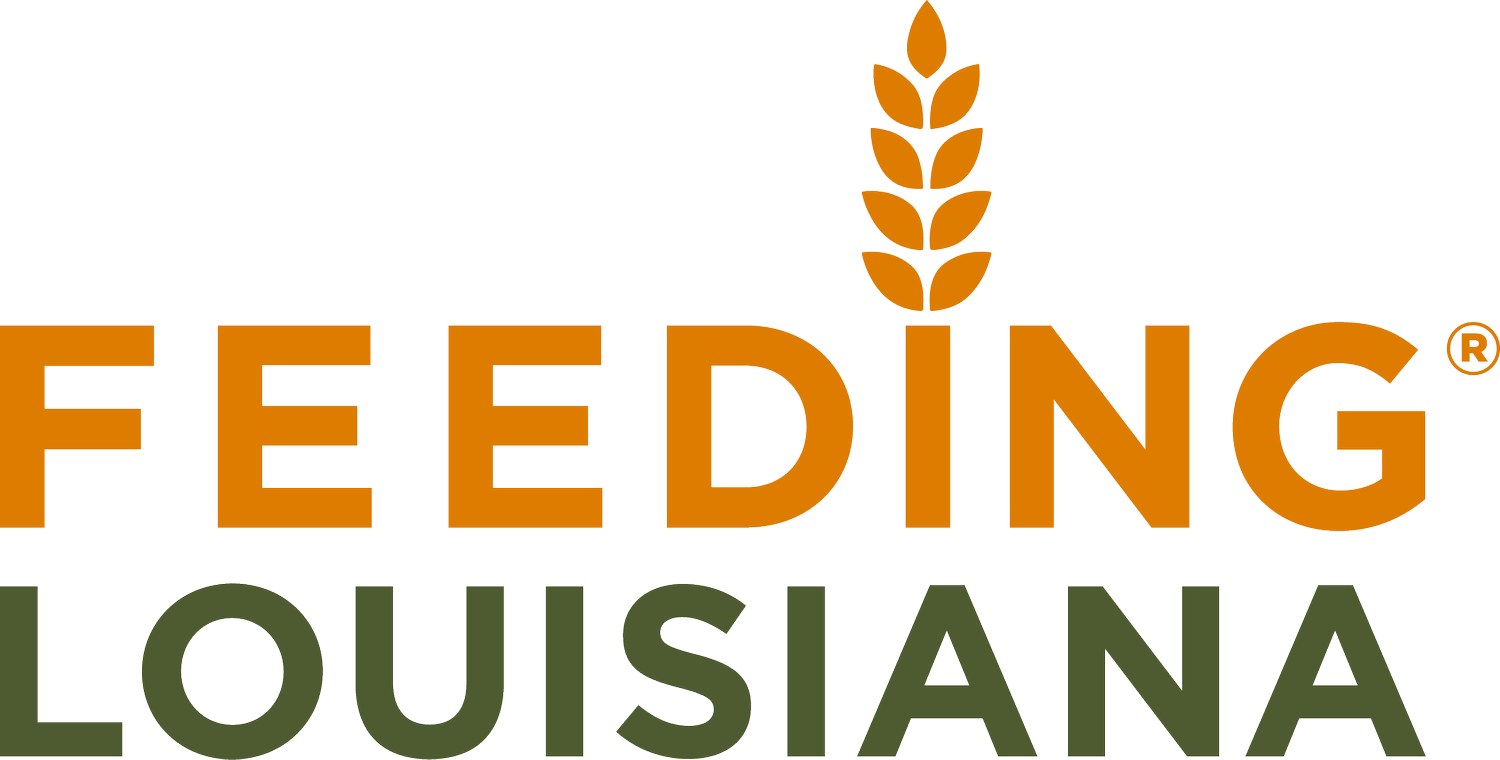Advocacy
It takes more than food to fight hunger
Feeding Louisiana and our partner agencies are on the front lines of hunger. We all have a stake in ensuring our neighbors have enough to eat. Every day, elected officials in Congress, state legislators, and local leaders shape the state of hunger. Join us in advocating for programs and policies that address the many factors that contribute to food insecurity.
Our Policy Priorities
Expand access to food
Provide disaster preparation and response support
Protect and strengthen programs that fight hunger
Protect and strengthen the Charitable Food Assistance Network
2026 Regular Legislative Session - Bills Related to Hunger, Food Systems, and Nutrition Access
-
Proposed law requires Department of Education to provide funding to governing authorities of school nutrition programs that participate in the Free School Breakfast Program for each reimbursable school breakfast served, up to one breakfast per student per school day.
-
HB 218 would require Louisiana public schools (including charter schools) to implement food insecurity screening programs for K–12 students at enrollment and once each semester, include screening in school-based health clinic assessments, maintain confidentiality, and provide referral procedures for students identified as at risk.
-
SB 57 would make a narrow change to Louisiana’s existing food-labeling law for certain additives and chemicals. Current law requires manufacturers to use a QR code and notice language for covered products, with violations treated as a state Sanitary Code violation, while already exempting medical foods, retail-prepared/labeled foods, and alcoholic beverages. The proposed bill adds foods for special dietary use to the list of products exempt from those labeling requirements.
-
SB 52 would require DCFS to report to LDH within 72 hours when a child is placed in DCFS custody, and require LDH to immediately review/adjust SNAP, WIC, and FITAP benefits in the parent household, issue a new Medicaid managed care card for the child at the new residence, and take additional steps when the child returns home or when duplicate household claims are identified. It also requires referral to LDH’s fraud unit in certain cases involving failure to report household changes.
-
Provides for the membership of the Children's Cabinet Advisory Board and its subcommittees including removing the Louisiana Maternal and Child Health Coalition representative and adds the superintendent of the Louisiana State Police to the advisory board. Also provides that the secretary of the department administering both SNAP and the Kinship Care Program shall appoint a member to serve on the subcommittee.
Feeding Louisiana Policy Priorities 2026
Who We Are
Feeding Louisiana is the statewide association of the five Feeding America–affiliated food banks serving all 64 parishes: Second Harvest Food Bank of Greater New Orleans & Acadiana, Greater Baton Rouge Food Bank, Food Bank of Central Louisiana, Food Bank of Northeast Louisiana, and Food Bank of Northwest Louisiana.
Our Approach
Our policy agenda is statewide, data-informed, nonpartisan, and coordinated with partners. It centers the lived expertise of neighbors experiencing hunger and focuses on actions where our voice and capacity add the most value—meeting urgent needs today while advancing a future in which every Louisianan has equitable access to the nutritious food they need to thrive. Addressing food insecurity requires both emergency food and work on root causes: poverty, lack of affordable housing, chronic health conditions, and discrimination.
Note: Additional legislation affecting our ability to nourish communities, shorten the line for food assistance, and elevate neighbor and partner voices may arise during the year; not all priorities are captured here.
-
$5 Million: Louisiana Farmers to Food Banks Initiative
Feeding Louisiana seeks a $5 million state appropriation to establish a reliable market for small-scale Louisiana farmers and food producers by purchasing Louisiana-grown products and directing that food to the five regional food banks for distribution to neighbors facing food insecurity. This investment strengthens Louisiana agriculture, keeps state dollars in-state, and immediately increases the supply of nutritious food available through the statewide food bank network.
The problem this addresses:
Farmers need dependable buyers: Small and mid-sized producers often lack stable, high-volume purchasers and predictable contracts.
Food banks face supply pressure: Charitable food inventories fluctuate and are often insufficient to meet community demand—especially for fresh, healthy foods.
Louisiana can solve two problems at once: A state-funded purchasing program can stabilize farm income while improving food access statewide.
What the $5 million would do?
Create a state-supported purchasing market for Louisiana producers by:
Buying Louisiana-grown food (priority on produce, eggs, protein, seafood, and other nutritious staples where feasible).
Aggregating and distributing purchases through the five Feeding America–affiliated regional food banks.
Delivering food to neighbors through food bank pantries, mobile distributions, senior distributions, and other community access points.
Why this is a smart state investment?
Supports Louisiana agriculture: Creates consistent demand and predictable revenue for local producers.
Strengthens local economies: Keeps food dollars circulating in Louisiana communities.
Improves food access quickly: Converts funding directly into food on shelves and at distributions statewide.
Efficient statewide infrastructure already exists: The five regional food banks have the warehousing, logistics, and community partner networks to move food rapidly.
-
Strengthen TEFAP. Increase funding, flexibility, and infrastructure support for The Emergency Food Assistance Program.
Modernize SNAP. Protect access, simplify enrollment/recertification, support reasonable waivers, and ensure benefit adequacy.
Enhance Child Nutrition Programs. Improve and expand NSLP/SBP, SFSP, CACFP, and WIC participation and operations.
Boost Food Recovery & Access. Expand incentives/liability protections and invest in rescue logistics.
Advance Equity. Ensure federal nutrition programs equitably reach rural communities, communities of color, older adults, people with disabilities, and limited-English-proficient households.
Child Tax Credit. Restore an expanded, fully refundable CTC for the lowest-income families.
Sustain Proven Models. Promote and fund programs such as LFPA (Local Food Purchase Assistance) that connect neighbors with local, nutritious food.
Uniting Partners to Feed More Neighbors
Together with lawmakers, agencies, schools, healthcare, farmers, retailers, and community partners, Feeding Louisiana will move more nutritious food to more neighbors—while advancing policies that reduce the need for emergency food over time.






